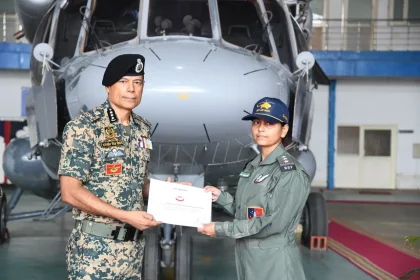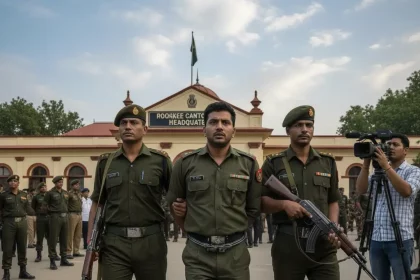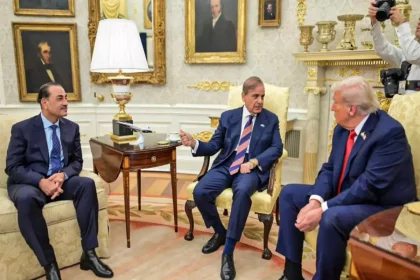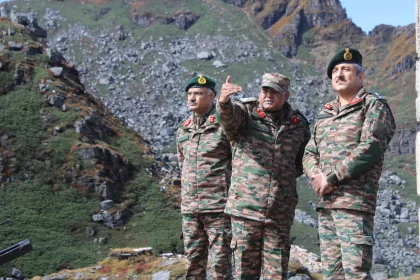Who is Maria Corina Machado? Winner of 2025 Nobel Peace Prize
María Corina Machado's journey exemplifies resilience in the face of adversity, positioning her as a beacon for democratic reform in…
BSF Air Wing Successfully Conducts In-House Ab-Initio Training for Flight Engineers
Five Trainee Flight Engineers, Including One Mahila SO, Receive Flying Brevets from DG BSF at New Delhi.
Man Impersonating Army Personnel Nabbed at Roorkee Cantonment; Probe Launched into Motive and Possible Links
Surendra Kumar from Rajasthan caught inside high-security Roorkee Cantonment with forged Army ID and uniform; second impersonation case in a…
U.S. Denies Reports of New Missile Sales to Pakistan, Clarifies No Upgrade to Current Capabilities
U.S. Clarifies: No New AMRAAM Missiles or Capability Upgrades for Pakistan Under Latest Contract.
Lt Gen Manraj Singh Mann Reviews Operational Preparedness in Forward Areas of East Sikkim
GOC Trishakti Corps Commends Troops for High Readiness Amid Challenging Terrain and Weather.
Bahawalpur Naan, Balakot Tiramisu: IAF’s Culinary Precision Strike on Pakistan
From Balakot to Bahawalpur, the IAF turned battlefields into banquets — serving precision, pride, and punch on a plate.






